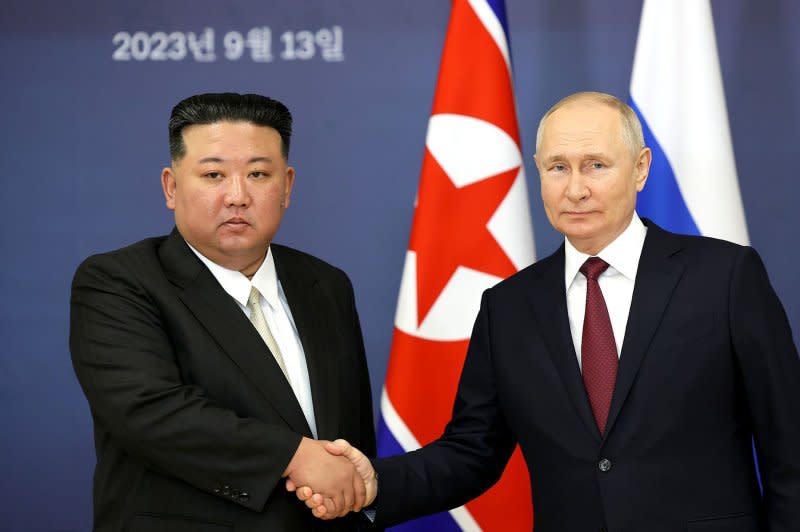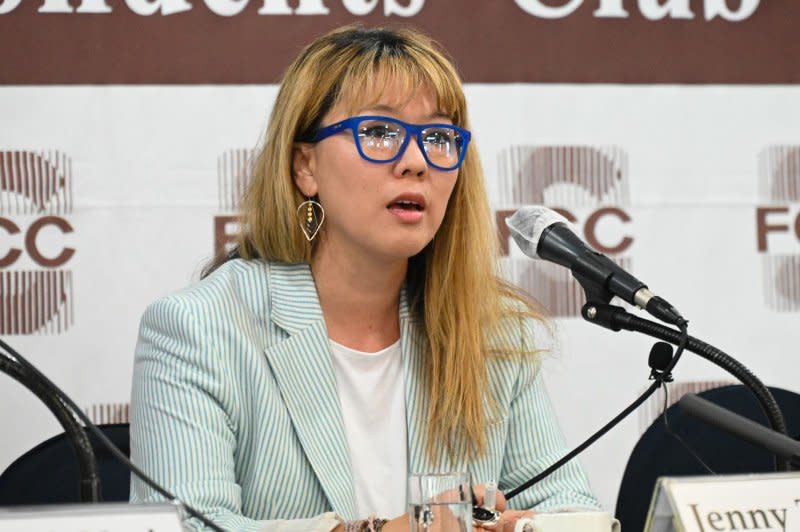U.S., South Korea hold emergency call over Putin visit to North Korea

SEOUL, June 14 (UPI) -- South Korean and U.S. officials held an emergency phone call over an upcoming visit by Russian President Vladimir Putin to North Korea, Seoul's Foreign Ministry said Friday.
First Vice Foreign Minister Kim Hong-kyun spoke with U.S. Deputy Secretary of State Kurt M. Campbell, the ministry said in a statement.
Kim "explained our clear position that Russian President Putin's visit to North Korea should not result in deepening military cooperation that violates North Korea's U.N. Security Council resolutions and undermines peace and stability in the region," the statement said.
Campbell agreed that the visit would heighten "regional instability and challenges" and called for close cooperation between Washington and Seoul, according to the ministry.
Putin's impending trip was first reported on Monday by Russia's Vedomosti newspaper, which quoted Russian Ambassador to North Korea Alexander Matsegora as saying preparations were underway.

Putin has visited North Korea only once before, in 2000, when he met with then-leader Kim Jong Il -- the father of current leader Kim Jong Un.
A South Korean presidential official confirmed the trip on Wednesday and said it was likely to take place "in a few days," according to news agency Yonhap.
The reciprocal visit comes after Kim Jong Un traveled to Russia in September and is the latest sign of a growing relationship between the two countries that includes weapons sales and economic assistance.
On Wednesday, Kim sent a congratulatory message to Putin for Russia's National Day.
Relations between the two countries have "developed into invincible ties between comrades-in-arms and a far-reaching strategic relationship, thanks to our significant meeting ... in September last year, and they are steadily developing into a new high," Kim said in a statement carried by official Korean Central News Agency.
Washington and its allies have accused North Korea of sending munitions to Russia for its invasion of Ukraine in exchange for fuel, raw materials and advanced technology for its weapons programs. In March, South Korean Defense Minister Shin Won-sik said that the North had already sent 7,000 containers of ammunition to Russia.
Pyongyang and Moscow deny the charges, but the use of North Korean missiles on the battlefield in Ukraine has been documented as far back as January.
Jenny Town, director of the Stimson Center's Korea Program and its 38 North website, said Friday that Putin's trip shows that "the military cooperation continues and is likely deepening."
While the long-term relationship between the two countries remains uncertain, North Korea has already seen "immediate and tangible results" for its sanctions-hit economy, Town told reporters at a briefing in downtown Seoul.
"You do see [North Korea] transitioning their economy towards more of a defense industry and defense exports," she said. "It gives them an alternative economic opportunity to what they've been limited to in the past."
However, Town said it was doubtful that North Korea and Russia would formalize a more comprehensive defense pact on this trip.
"I don't expect that we'll see any major pronouncements come out of this summit," she said. "Mainly because a lot of the activity that they're doing is technically sanctioned activity to begin with. And I think there's a reluctance to really put that down on paper."


